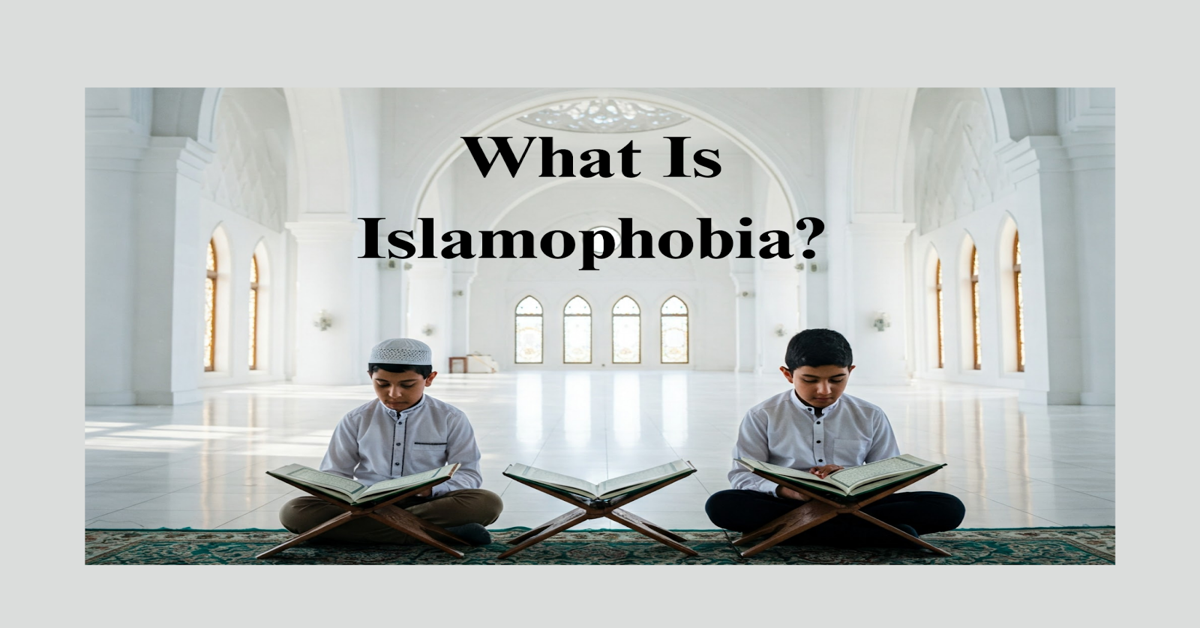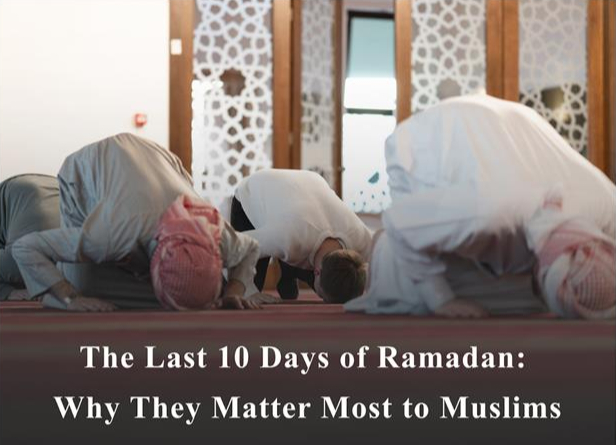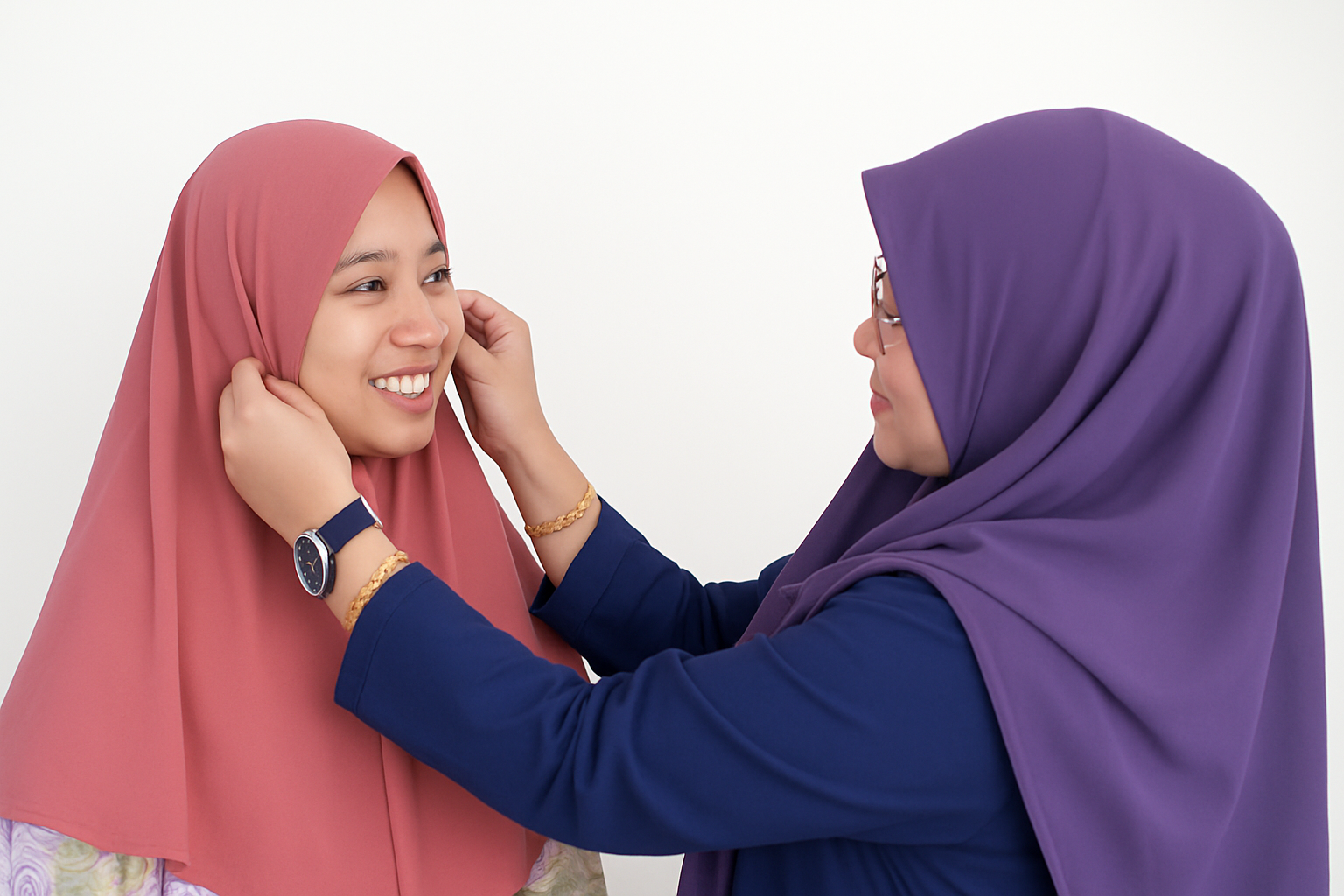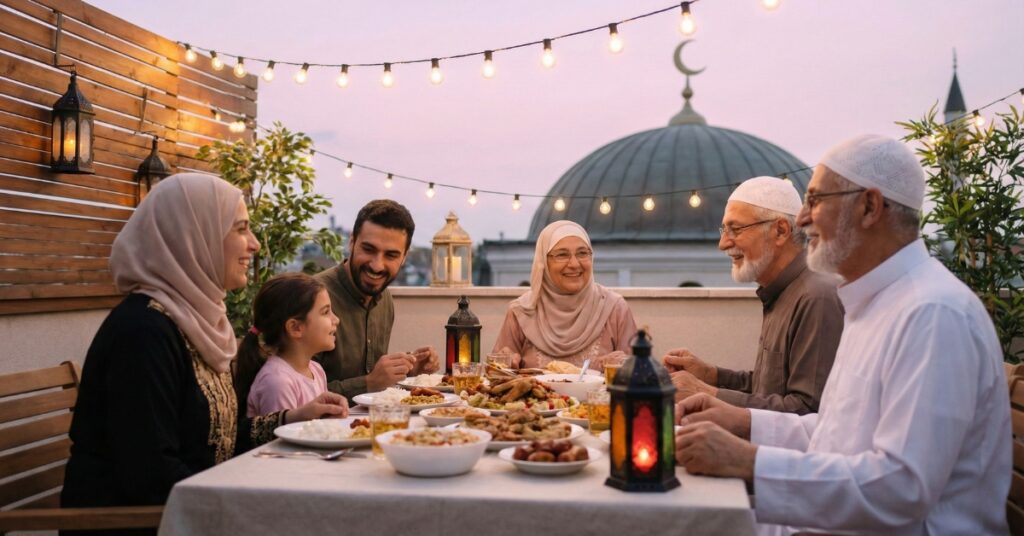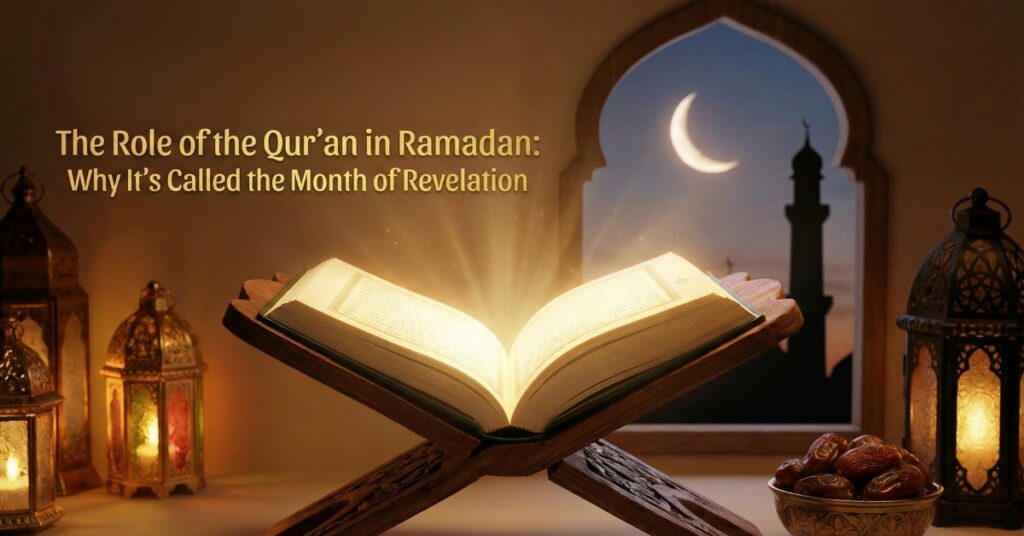Before we see the Islamophobia meaning, we should clearly know what is Islam. It is a religion of peace, the word itself is derived from the Arabic term Salima, which means peace. A Muslim is the one who believes in Islam as his religion and follows its teachings, believes in the oneness of Allah, obeys the teachings of the Quran, follows Muhammed ﷺ as the final Prophet and Messenger of Islam. All Muslims are one Ummah, which means a community or a nation. Muslims are not one race, neither they’re of one color, nor do they speak the same language but all are one Ummah. They are brothers and sisters to each other.
What is Islamophobia? It refers to prejudice, fear, hostility, or hatred directed toward Islam as a religion or toward Muslims as adherents of Islam. It is the irrational fear or negative bias that views Muslims collectively through stereotypes, often ignoring diversity in beliefs, cultures, and practices which are not only beautiful in itself but also very inspiring. Islamophobia is more than mere disagreement with religious doctrines — it manifests as discrimination, exclusion, harassment, or even violence that often disrupts peace and unity.
In short, Islamophobia meaning includes both an ideological bias (negative beliefs about Islam) and behavioral consequences (actions against Muslims). Recognizing the definition is the first step toward addressing it. Many fear Islam as a religion of Hatred and terrorism which is so unjust. Let’s dive into all things about and around Islamophobia to make it clear to the people of the World.
Causes of Islamophobia
Understanding the causes of Islamophobia helps us address its roots a bit deeper rather than just treating symptoms. Several interlocking factors contribute:
Historical and colonial legacies
Centuries of colonialism, Orientalist scholarship, and Western narratives that framed Muslim societies as “backward” or “other” laid a foundation for suspicion. These historical narratives feed into stereotypes that persist today. While there are many narratives in the QUran and Hadith which would clearly open their eyes.
Media portrayals & Islamophobia in media
News media, films, social media, and entertainment often portray Muslims in the context of terrorism, extremism, or conflict. This selective framing reinforces fear. Negative portrayals — such as linking Islam with violence, highlighting Muslims as criminals more often or portraying Muslim women as oppressed — amplify prejudice.
Political exploitation & fear-mongering
Some political actors exploit public fears for their own ends. They may paint Muslims as security threats or outsiders to gain votes or power. Such exaggerated narratives exacerbate distrust.
Ignorance and lack of contact
When people have little interaction with Muslims, stereotypes often fill the void. Lack of knowledge or understanding about Islamic beliefs, rituals, diversity, and everyday Muslim lives creates fertile ground for prejudice. When you get to know the lives of Muslims and closely watch their lifestyle and their practices you will be so inspired by them that your heart would desire to become a Muslim and embrace Islam.
Religious or ideological misunderstanding
Misinterpretations of Islamic teachings or conflation of cultural practices with faith lead people to condemn the religion as harmful. Some may mistake extremist acts for representative of Islam as a whole. But the reality is Muslims are taught not only to behave well among themselves, also with people of other religions as well, they are bound to respect other religions as well. Following Islam is not forced on anyone unless they are willingly doing that. They can even read The Holy Quran to understand the religion and clear their misconceptions.
Social anxiety & scapegoating
In times of economic, social, or cultural stress, minority groups like Muslims may become scapegoats. Islamophobia can intensify during crises (terror attacks, migration, conflict) as people seek someone to blame. Often they are targeted or blamed without any reason.
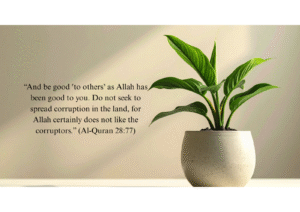
Impacts and Effects of Islamophobia
When exploring the effects of Islamophobia, we see wide-ranging harm, both individual and communal, spiritual and social.
Psychological and emotional harm
Muslims may suffer anxiety, depression, fear, or identity stress. Constantly being on guard or facing microaggressions (insults, exclusion) erodes self-esteem and well-being. This damages their development and growth both as an individual and as a community.
Social exclusion and discrimination
Islamophobia manifests in workplaces, education, housing, law enforcement, and public life. Muslims may be denied jobs, promotions, or opportunities; face harassment at school; or be profiled by authorities which is unacceptable and unfair leading to discrimination against Muslims.
Erosion of trust and alienation
A climate of suspicion breeds mistrust between Muslim communities and majority populations or institutions. Muslims may feel alienated, less safe to express faith, or less willing to participate in civic life. Their confidence is tampered that way.
Threats and violence
In extreme cases, Islamophobia leads to hate crimes, vandalism of mosques, assault on individuals, or murder. Such violence is a stark and tragic manifestation of unchecked prejudice. They still absorb everything with a smile on their face and they trust their Almighty even after these sufferings.
Intergenerational and community effects
Younger Muslims grow up under prejudice; some may internalize negative stereotypes. Community institutions (mosques, schools, social clubs) may become more insular out of fear. Also, interfaith harmony is harmed.
Islamic Perspective — What Islam Teaches
In addressing Islamophobia, it is helpful to reflect on what the Qur’an and the Sunnah teach about justice, unity, and respect.
Justice and fairness
Allah commands justice clearly:
“O believers! Stand firm for justice as witnesses for Allah even if it is against yourselves, your parents, or close relatives. Be they rich or poor, Allah is best to ensure their interests. So do not let your desires cause you to deviate ˹from justice˺. If you distort the testimony or refuse to give it, then ˹know that˺ Allah is certainly All-Aware of what you do.” (Qur’an 4:135)
Moreover, He says:
“Indeed, Allah commands justice, grace, as well as generosity to close relatives. He forbids indecency, wickedness, and aggression. He instructs you so perhaps you will be mindful.” (Qur’an 16:90) Thus, Islam fundamentally forbids oppression, bias, or mistreatment based on identity.
Equality of humanity
The Qur’an emphasizes human unity:
“O humanity! Indeed, We created you from a male and a female, and made you into peoples and tribes so that you may ˹get to˺ know one another. Surely the most noble of you in the sight of Allah is the most righteous among you. Allah is truly All-Knowing, All-Aware.” (Qur’an 49:13)
The Prophet Muhammad (peace be upon him) similarly taught against racism and tribalism:
“O people! Your Lord is one and your father Adam is one. There is no superiority of an Arab over a non-Arab, nor a non-Arab over an Arab; neither is the white superior over the black, nor the black over the white — except through piety.” (Sahih Bukhari)
These teachings clearly put down any ideology that discriminates against Muslims on grounds of race, language, or origin.
Kindness, patience, and dialogue
The Prophet ﷺ engaged people of all beliefs with respect and dialogue. He emphasized gentleness, mercy, and correcting others with wisdom and good manners.
From the hadith teachings addressing tribalism and social justice: racism or tribal bias is condemned, and the believer is urged to act with fairness.Thus, from an Islamic perspective, Muslims are encouraged to respond to prejudice with dignity, educate kindly, and foster positive relations.
How to Stop Islamophobia
Turning to solutions, the question is: how do we effectively stop Islamophobia? Below are strategies at multiple levels.
Education and awareness
- Promote Islamophobia awareness campaigns in schools, universities, workplaces, and media to debunk myths, share accurate information, and humanize Muslim lives.
- Encourage intercultural and interfaith dialogue so people meet Muslims, hear their stories, and break stereotypes.
- Create and disseminate resources (videos, articles, talks) that explain Islam, diversity among Muslims, and the harm of prejudice.
Reform media narratives
- Hold the media accountable: demand balanced and fair reporting, representation of Muslims beyond conflict frames.
- Encourage Muslim voices in journalism, storytelling, and cultural production to tell their own narratives.
- Support platforms and outlets that portray Muslims in everyday contexts — as neighbors, professionals, parents — not just in headlines.
- Even podcasts these days are an effective way to reach out to people and give them a clear picture of what actually Islam is.
Political and institutional advocacy
- Lobby governments, legislators, and international bodies to enact and enforce hate crime laws, anti-discrimination statutes, and protections for religious freedom.
- Encourage institutions (schools, companies, police, local government) to adopt policies training their staff on bias, inclusion, and cultural sensitivity.
- Monitor public discourse and call out Islamophobic rhetoric. Encourage accountability for public figures who spread hate.
Community empowerment
- Strengthen Muslim communities through outreach, interfaith partnerships, community service, and visibility in civic life.
- Establish support networks (legal aid, counseling, human rights groups) for victims of Islamophobic discrimination.
- Collaborate with allies from other marginalized groups — stand in solidarity against prejudice more broadly.
- Believe in ourselves that together we can do it.
Scholarly, religious, and grassroot intervention
- Encourage Islamic scholars and leaders to speak clearly against Islamophobia, providing theological and moral arguments grounded in Qur’an and Sunnah.
- Use mosque platforms, khutbahs, study circles, youth programs to educate Muslims on dignity, resilience, and constructive engagement.
- Foster grassroots initiatives: workshops, open mosques days, community dinners, dialog circles to bring Muslim and non-Muslim communities together, where they get to know Muslims more.
Personal responsibility
- When witnessing Islamophobic remarks, gently but firmly correct misinformation, share facts, or ask questions that prompt reflection.
- Be a bridge: befriend Muslim neighbors or colleagues and show genuine interest in their lives, culture, perspective.
- Examine one’s own biases and assumptions; commit to learning, humility, and self-correction.
- Do not simply believe what you see on Newspapers or on Social media. Take some efforts to get to the roots of the News and verify its authenticity.
If many individuals commit to such actions, the cumulative effect can erode prejudice and foster respectful coexistence.
Conclusion
The struggle to stop Islamophobia is not just a Muslim concern but a human rights issue that affects us all. As the Quran teaches us, diversity among people is a sign from Allah meant to foster understanding and cooperation, not fear and hatred. We should work on getting to know each other rather than exploiting a particular religion and blaming its base.
The path forward requires commitment from all sectors of society – government, media, educational institutions, and individuals. By working together, guided by the principles of justice, compassion, and mutual respect that Islam teaches, we can create a future where the effects of Islamophobia are merely a memory, and where diversity is truly seen as a blessing rather than a threat.
Our Prophet ﷺ treated everybody with kindness and respect. He spoke humbly and never used harsh words. He was forgiving to those who fought him. When a dispute came to him involving the Jews and the Christians, Rasullullah ﷺ always judges it fairly, even if the judgement was against the Muslims.
Let us always remember the words of Prophet Muhammad (PBUH): “He who does not show mercy to others, will not be shown mercy.” In showing mercy and understanding to all, regardless of their faith or background, we follow the true path of Islam and contribute to a more peaceful and just world for all. Allah gave every human being certain rights. We must respect those rights.
Can non-Muslims also suffer from Islamophobia?
Generally, Islamophobia targets those perceived as Muslim. However, non-Muslims mistaken for Muslims (by name, dress, appearance) may also experience harassment or discrimination in contexts of Islamophobia.
Does Islamophobia only exist in non-Muslim societies?
No. Though most prevalent where Muslims are a minority, forms of intra-Muslim prejudice may echo Islamophobic patterns (sectarianism, intra-religious bias). Moreover, in Muslim-majority societies, attitudes toward more visible Muslim groups (e.g. immigrants, converts) may also be hostile.
How does one measure the prevalence of Islamophobia?
Researchers use surveys (attitude studies), monitoring hate crime data, media content analysis, institutional discrimination reports, and ethnographic testimonies from Muslim communities.
What should a Muslim do when facing Islamophobia?
Seek support (friends, community organizations, legal help if needed), respond calmly and wisely (if safe), document incidents, and engage in positive outreach when possible — while relying on faith and patience.
How can we stop Islamophobia?
To stop Islamophobia, we need education campaigns, interfaith dialogue, media reform, legal protections, community outreach, and following Islamic teachings of justice and peaceful coexistence.

